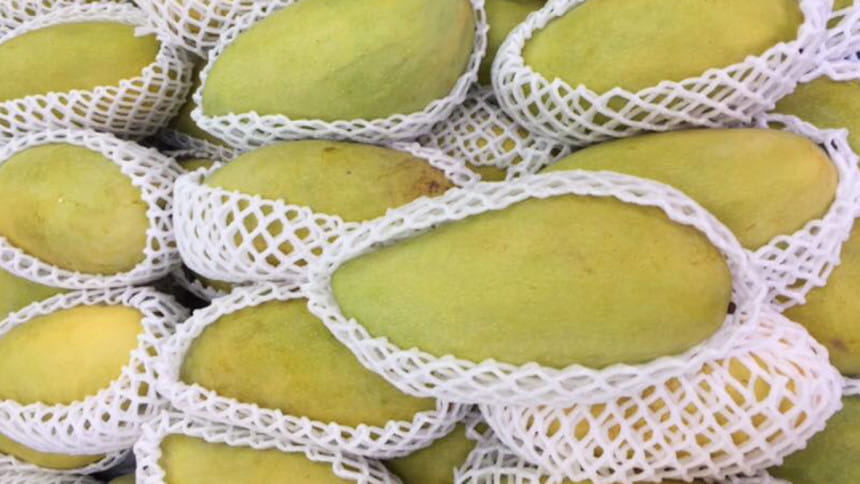Vietnamese mangoes to be exported to US

After 10 years of negotiations, Vietnamese mangoes were licensed for export to the US on February 18.
Speaking at a ceremony to announce the licence held in Hanoi on the same day, deputy minister of Agriculture and Rural Development Le Quoc Doanh said US imports of mangoes from Vietnam have shown effective co-operation between the two countries in the agricultural sector.
"Mangoes are a strong fruit of Vietnam. The approval from the US for the imports has been good news for the agricultural industry and mango farmers in Vietnam as well as affirming Vietnamese fruits' position," Doanh said.
He added that imports would also bring opportunities for Vietnamese fruits as the US is a demanding market with strict regulations on quality control. It would therefore open opportunities to other demanding markets.
"The ministry will promote research and application of new science and technologies on farming, preservation and processing. Meanwhile, it will re-arrange production, especially building agricultural value chain. These moves could help Vietnam have high quality and clean agricultural products to meet strict requirements from importers," he said.
Mango farms, processing and packaging companies must obtain a code from the Vietnamese Plant Protection Department and the US Department of Agriculture's Animal and Plant Health Inspection Service (APHIS) for management and tracibility to export to the US.
Mangoes are grown in 59 among 63 localities in Vietnam. Of which, the Mekong Delta region accounts for 48 per cent of mango plantations in Vietnam. About 96 per cent of Vietnamese mangoes are produced and sold locally.
Vietnamese mangoes have been exported to 40 countries, including South Korea, Japan, Singapore, Australia, New Zealand, China and Thailand.
The Plant Protection Department first applied to export mangoes to the US in 2009.
Currently, Vietnam has five fresh fruits with licences for export to the US including litchi, longan, rambutan, dragon fruit and star apple.
Businesses said penetrating to the demanding market was difficult. But maintaining the market would be even more difficult.
"We established an association chain from farmers to firms to ensure sustainability for mangoes exports. We have to follow process from plantation to packaging and irradiation," said Nguyen Thi Hong Thu, director of Chanh Thu Fruits Import-Export Company Limited.
Hoang Trung, director of the Plant Protection Department said the US is a potential market as it imports around 400,000 tonnes of mangoes a year from Mexico, Peru, Ecuador, Brazil and Guatemala.
Its own mangoes are mainly cultivated in Florida, Hawaii and a small amount in California and Texas. Its mango output is 3,000 tonnes a year, only one-hundredth of its import volume.
Copyright: Viet Nam News/Asia News Network

 For all latest news, follow The Daily Star's Google News channel.
For all latest news, follow The Daily Star's Google News channel. 



Comments